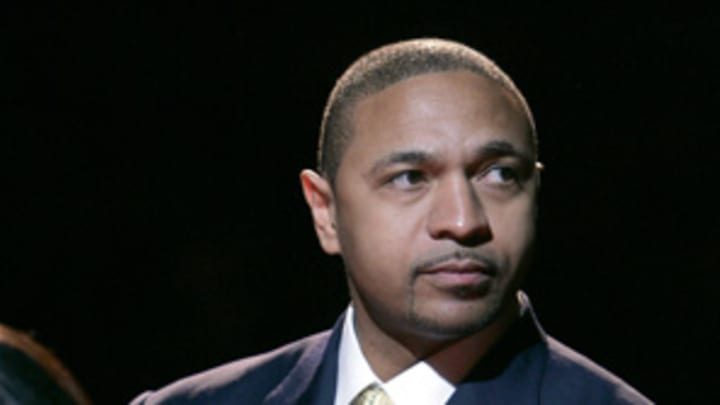Hawks GM must make familiar decision with coaching search


Seventeen years ago, Quinn Buckner was Mark Jackson.
Buckner was a young, aspiring head coach who, like Jackson did on Monday in Atlanta, interviewed with general manager Rick Sund for his team's coaching vacancy, in Dallas.
In part because Buckner is one of only three players to win championships at the high school, college, Olympic and professional levels (Magic Johnson and Jerry Lucas are the others), Sund hired him to lead a team that had gone 11-71 the previous season.
The result was not good. As he learned on the job, Buckner struggled to find the right balance between task-master and former player. The Mavericks got off to a 1-23 start and finished their tumultuous 1993-94 season at 13-69. Buckner was fired after that season.
Now, as Sund looks to replace MikeWoodson, the Hawks' GM must decide whether to take the same chance on Jackson that he took on Buckner in allowing a former player with no coaching experience to take over a 53-win team that was routed in the second round of the postseason.
Sund has whittled his candidates to Dallas assistant coach Dwane Casey, whom he worked with in Seattle; Atlanta assistant Larry Drew; ESPN analyst Avery Johnson, who won the 2006 Coach of the Year award and led the Mavericks to the NBA Finals that season; and Jackson, who was the last candidate to interview with Sund before he and Hawks owner Michael Gearon Jr. make their decision sometime this week.
"I think the critical issue is to get a very good staff," said Buckner, a Pacers broadcaster. "There is no question about Mark's understanding of the game of basketball. But there is a difference between knowing the game and coaching the game.
"There are a lot of things you have to manage. You have to manage personalities. As a player, you tend to get along with everybody. As a coach, that doesn't always happen because you are managing people's minutes. The other part is to understand the involvement from your assistant coaching staff, and that is one part that will be new.
"Then the other half is management and ownership has to be 100 percent on board. Everybody has to be 100 percent on board. I underestimated it, quite frankly."
Buckner hired Randy Wittman, Greg Ballard and Pete Newell's son, Tom, to be his assistants, all of whom were relatively inexperienced. He said he wanted to hire former Celtics coach Jimmy Rodgers to be a veteran voice on his bench.
"I couldn't find Jimmy Rodgers because [Bulls general manager] JerryKrause told him to go away because he was going to hire him the next year [as part of Phil Jackson's staff]," Buckner said. "That was what I needed -- somebody willing to teach a young coach how to be good. Coaching is a profession, but it is a craft. You have to put time and effort into doing it and you have be committed."
The difficulty in the NBA, Buckner acknowledged, is that virtually everybody who is on somebody's bench wants to be the head coach and so they are invariably scheming for the coach's job rather than helping him become better.
That's why, Buckner said, Jackson will need a few older assistants who are past the point of individual aspirations and only want to be part of a winning organization.
"I may be wrong because it has not worked out, but when Vinny Del Negro put his staff together [in Chicago], I said he hit a home run," Buckner said. "Bernie [Bickerstaff] and Del [Harris] both have been around a long time but do not necessarily want to be a head coach. Those are the kinds of guys you want, somebody perfectly content with trying to help some young coach find his way."
But, as Boston coach Doc Rivers has shown, gaining experience as an assistant first isn't always required for a successful head-coaching career.
"If he takes these things into consideration and puts them in the proper perspective, he can be successful," Buckner said. "Doc has done an exceptional job. He had never coached. There are people who can do that. He stepped out of the [broadcast] booth and stepped onto the bench.
"But it depends on where you go and what your expectations are. You have to manage expectations. And you have to do it with a real knack and tact and savvy. That is the difference between Doc three or four years ago and Doc today; now he is one of the great communicators. Of course, he also has a lot more talent on his roster right now, so that tends to make you a better coach."
